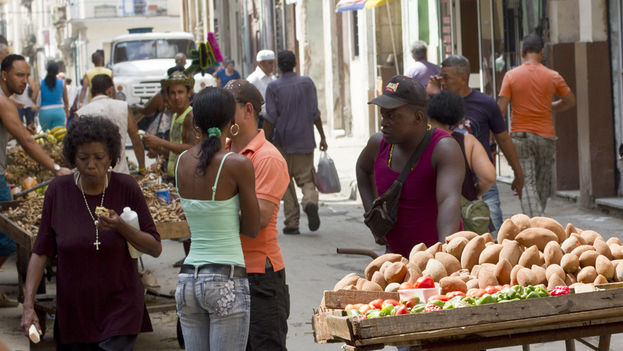
![]() 14ymedio Zunilda Mata, Havana, 11 January 2016 – The number of self-employed workers in Cuba decreased throughout 2015, as confirmed by the official press on Monday. In the middle of last year there were 504,600 people working for themselves, while at the end of December the number was 496,400.
14ymedio Zunilda Mata, Havana, 11 January 2016 – The number of self-employed workers in Cuba decreased throughout 2015, as confirmed by the official press on Monday. In the middle of last year there were 504,600 people working for themselves, while at the end of December the number was 496,400.
Of those working in the private sector, 65% are in the provinces of Havana, Matanzas, Villa Clara, Camaguey, Holguin and Santiago de Cuba, as detailed in a report by the Ministry of Labor and Social Security.
Among the activities with the greatest weight in the private sector are preaparing and selling food, with 56,270 licenses granted; the transport of freight and passengers with 50,482 self-employed workers; and the leasing of houses, rooms and spaces with a total of 28,634 self-employed people.
These occupations are followed by telecommunication agents, which total 24,195 across the island, while contract workers total 114,000, 22% of self-employed Cubans.
In its report, the ministry states that of the total number of people authorized to be self-employed, at least 17% are paid by the state sector. Youth and women account for 30% of all self-employed in the country and retirees represent 12%.
At present, there are just over 200 activities approved for this type of non-state labor. The high taxes, the absence of a wholesale market, the excessive controls and the inability to import commercial goods, hinder the performance of the sector.
The decrease in the number of self-employed could be interpreted as hitting the “natural limit” in self-employment since the flexibilities initiated in 2010. However, specialists at the Ministry of Labor and Social Security expect the number to grow “gradually,” and that added to this form of management will be “a set of dining establishments and services to the population” that will remain under state ownership.
